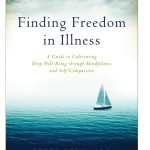
Meditation teacher Peter Fernando
by guest author Peter Fernando, Meditation and Mindfulness
Establishing a daily meditation practice can be an opportunity for creativity and a fresh perspective on how we live in the world.
It doesn’t have to seem like just another thing we should be doing, but aren’t…
One of the most frequent struggles I hear shared by those of us living in urban environments is around maintaining a continuity of mindfulness – both in terms of times alone, sitting in silence, and also in our encounters with the relationships, responsibilities and roles that make up our lives.
Often our experience of presence and peace can be limited to that 40 minutes in the meditation or yoga class we attend, and perhaps frustratingly absent during the rest of life.
However, if we shift our perspective from one of valuing a special state as the ‘spiritual bit’, and resuming automatic pilot during the ‘other bits’, to one of an interest in awareness and inquiry as a 24/7 activity, life begins to open up in wonderful ways.
In fact one of the characteristics of what the Buddha called ‘mindfulness’ is that it is not state dependent. In other words, it is that which knows, holds and relates to the states of mind, heart and body that are continuously arising and ceasing in our experience – rather than being some special ‘place’ apart from it. With this perspective, the invitation to commit to a daily practice seems less like a chore and more of an enticing possibility.
What would it be like if we could take a full body and mind presence into the interactions and activities of daily life?
What would it be like to shift our perpective from being a victim on the periphery of forces, drives and habits that seem inevitable, to that of being in the hub of experience as it is arising – free of judgement, and keenly interested in the question: ‘What is this?’.
Those are the questions that form the core of daily mindfulness practice. Equipped with this inquiry we can begin to find a centre of awareness and strength even in the midst of apparently turbulent or distracting situations.
When the forces of our consumer culture tug upon the heart and mind, suggesting that we should be valuing ourselves in terms of performance, achievment and self-image, we can be quietly holding those very energies as they are arising in our own hearts, and not buying into them as absolutely true. At the same time we can connect to our longing for a value more intimate and unconditional in our being, and align our motivations and intentions with this.
When our aquaintances, family or even friends attempt to pull us into harmful patterns of being, we can quietly maintain our ground, and not take the bait. And rather than hardening our hearts, we can also inquire into and listen for that which can still remain loving and open.
We can also feel the arising of the person we take ourselves to be, in relation to others, and witness it as an object in presence, rather than just reacting from the assumption that it is absolutely real.
I’m sure we all know that heart-sinking feeling of being pulled into the contraction of that ‘me’, only to later realize: ‘Sucked in!’.
So in our relationships we can come to notice not only the ‘other’ but also the ‘me’ that is manifesting in this moment, and how that is colouring what we take the other to be. This is a very empowering inquiry, which frees the heart from habitual reactivity, and into a presence that is more in tune, responsive and available for wisdom.
While we see our own imperfections, reactions and limitations arise in daily life, we can attune to a steady attitude of kindness and tenderness to these apparent failings and their underlying broken-ness – letting go of what we can, and listening to what we can’t with the patience and the love of a mother to her child.
So rather than tripping ourselves up in guilt and shame, we can allow ourselves to instead be sensitive to the very pain that those self-disparaging habits of heart contraction create, and also courageously strong in our devotion to seeing through and releasing them.
And gradually we may find that we actually have the presence of mind to meet our imperfection directly and without blame.
From this place, the heart’s energies, urges and drives can flow through our bodily presence, rather than getting stuck in our heads as ‘wrong’.
These are just a few examples of how we can take our heartful inquiry into everyday life.
Although the experiences we have can be myriad and diverse, the flavour of authentic mindfulness remains the same – we begin by coming back to a non-judgemental, curious presence, and shift our mode from one of reacting to one of innocent listening.
In this shift we can begin to see ourselves more clearly, and have say in the kind of heart qualities we bring into our lives, and also the degree of creativity, courage and wisdom involved in the choices we make.
Of course we also need to maintain a continuity of ‘alone-time’, sitting in meditation or even quiet contemplation, in order to have the resources of inner presence to take into the world of people, activities and roles.
However, in my experience, the degree to which we will be interested, enthusiastic and even excited in being alone in silence depends upon the shift of perspective to one that includes everything in our meditative attention, rather than seeks to get rid of it, or somehow cut it out.
As one of my teachers, Ajahn Sucitto once said:
Whatever you exclude from your practice will eventually take you out of it.
There is great wisdom in those words.
In order to explore the art of daily practice, I will be offering a month-long online course, beginning February 1 2011, entitled A Month of Mindfulness. The idea for this format was inspired by Marianne Elliott’s 30 Days of Yoga, and I owe a lot to her in terms of both the example of what is possible, and also the hard-earned knowledge she has generously (and patiently!) shared around actually creating it.
A Month of Mindfulness course consists of:
- five complementary approaches to meditation practice, in both written format and with an accompanying 30 minute guided audio meditation
- the opportunity to ask questions via email at any time
- a forum to connect with the other participants
- a weekly one hour conference call.
It is my intention to create a community based on kindness and respect, and to facilitate a heart space where we feel we have permission to be completely where we are, as we are. I hope you can join me for this journey!
You can buy downloads of guided meditations from Peter in The Yoga Lunchbox Shop.

timely talk, expanding daily mindfulness
seems so very true:
“…the degree to which we will be interested, enthusiastic and even excited in being alone in silence depends upon the shift of perspective to one that includes everything in our meditative attention, rather than seeks to get rid of it, or somehow cut it out….”
Isn’t Peter wonderful? I love his ability to make meditation about every-moment mindfulness. It’s powerful stuff indeed.
Blessings,
KL
yes indeed 😉
will miss some post for awhile, beginning studies with lex gillan in houston thru near end of mth, then will begin (teaching) a senior’s yoga class 1st wed in feb, but will play catch-up with your wonderful site and insights as able
thanks kara-leah 😉
Thank you for your kind words, lovely people!
Blessings
Peter